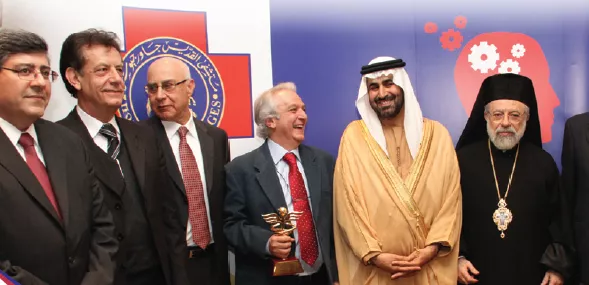Beirut Blast
Beirut Blast
Acute Stress Disorder Assessment of Staff at Saint George University Hospital Medical Center (SGHUMC) following the Beirut Blast and Prospective Follow-Up (Wave 1 & 2)
IDRAAC launched a prospective cohort study to describe, examine, and assess the impact of the Beirut’s explosions on the mental health of SGHUMC staff, especially pertaining to Acute Stress Disorder (ASD).
This study included a baseline assessment of acute stress levels (after an average of 10 days of the explosion) with a follow-up after 3 weeks from the explosion.
Staff at SGHUMC who underwent PCR testing were approached to be enrolled in this study and were handed a self-filled questionnaire (available in two languages) that included a screening of ASD and questions related to the explosion.
A second assessment was initiated 3 weeks after the explosion.
This assessment was in the form of an online survey sent to all the hospital’s staff and it included a similar scale to the one used in wave 1 addressing a different timeframe.
Staff who felt the need to seek mental health support were referred to the walk-in clinic and hotline and those at high risk were contacted for further support.
Analysis is under way and will be submitted for publication in a scientific journal.
For a specific study predicting Acute Stress Disorder and PTSD, click on this link.
The HEalth caRe wOrkErS Study: HEROES- LEBANON
IDRAAC is taking part in a multinational study which will allow the understanding of the COVID19 pandemic, the economic situation and the Beirut Blast effects on health workers. This study is conducted in coordination with the National Mental Health Program at the Ministry of Public Health in Lebanon (MOPH) and is the largest study to be done in Lebanon among health workers addressing the effects of the COVID-19 pandemic, the Beirut Port Blast and the economic situation.
The study is a prospective cohort study including a baseline assessment and three follow up assessments (after 3, 6, and 12 months). Collaborators from 32 countries in 5 continents (America, Europe, Africa, Asia, and Oceania) will participate in the study and it is coordinated by the University of Chile and Columbia University.
Participants will answer an online questionnaire including a screening on psychiatric symptoms, questions on several emotional and social factors affected by the COVID-19 pandemic and questions on their economic situation and previous stressors. The study in Lebanon has been adapted to assess the particular stressors and psychological adversities of the Beirut Port blast.



